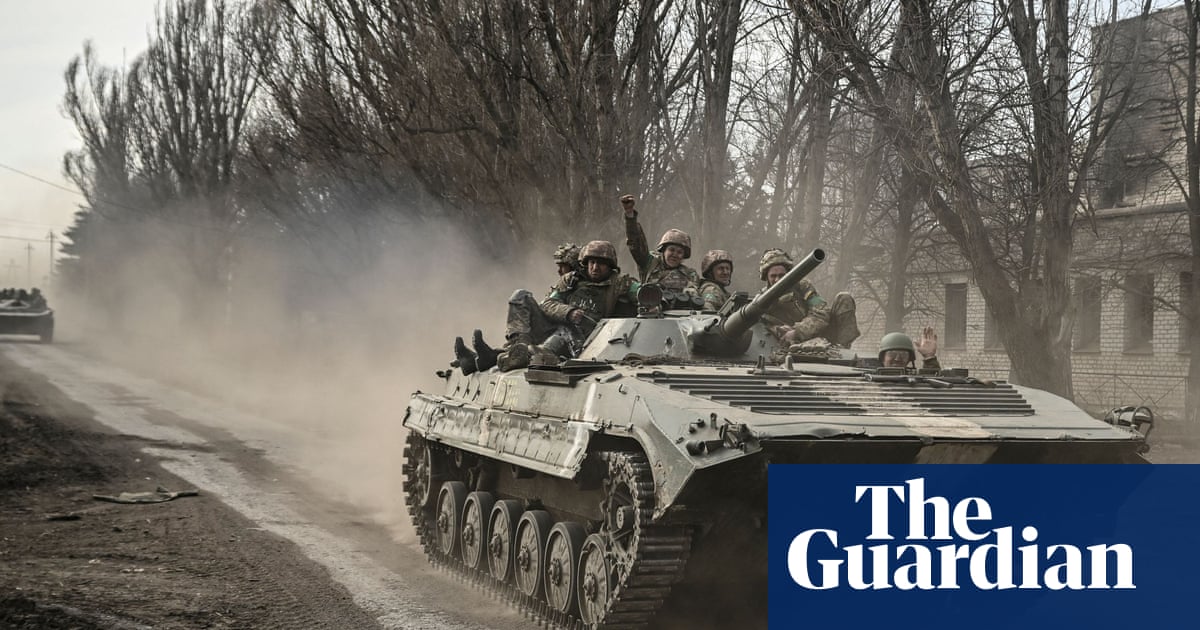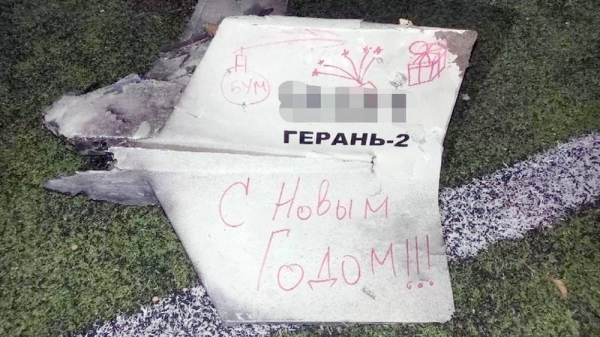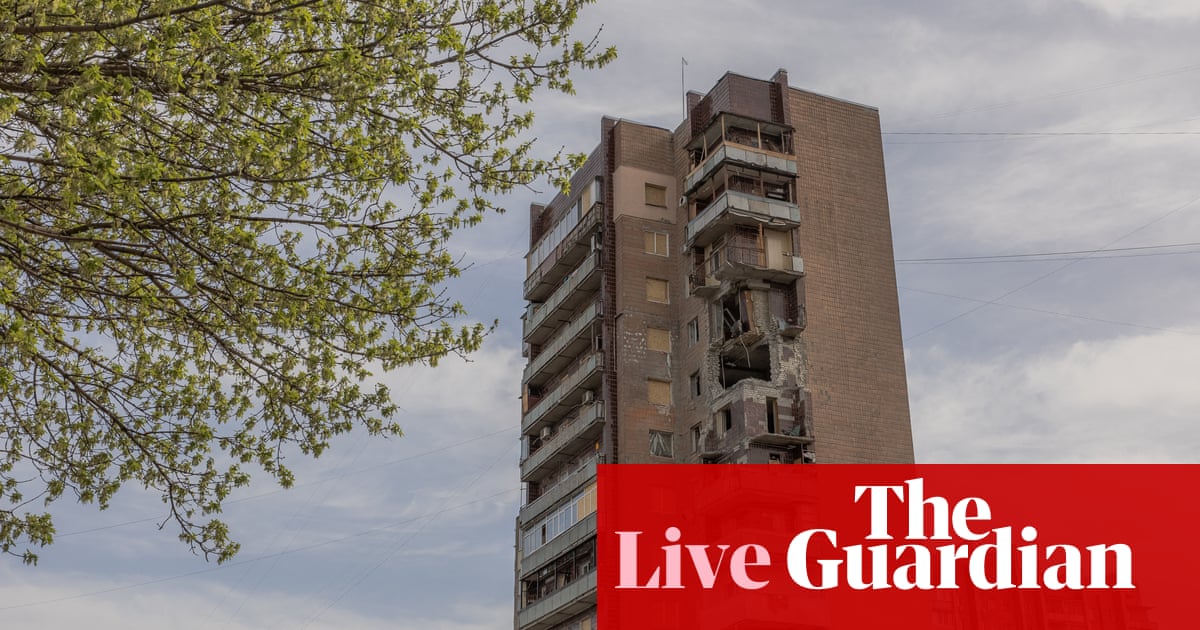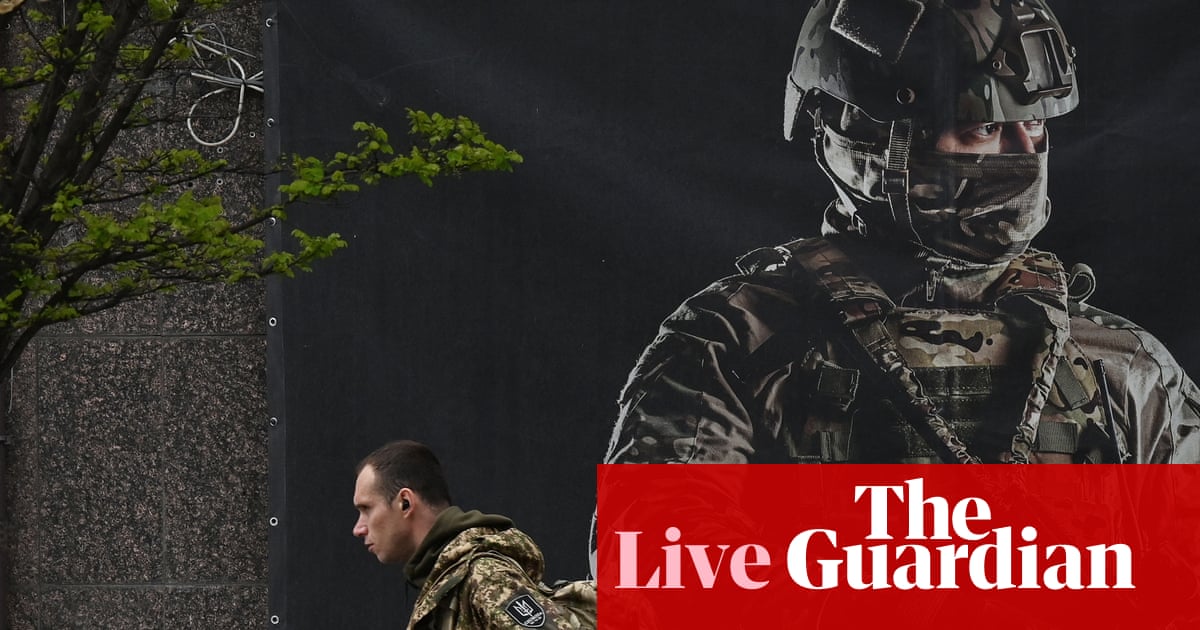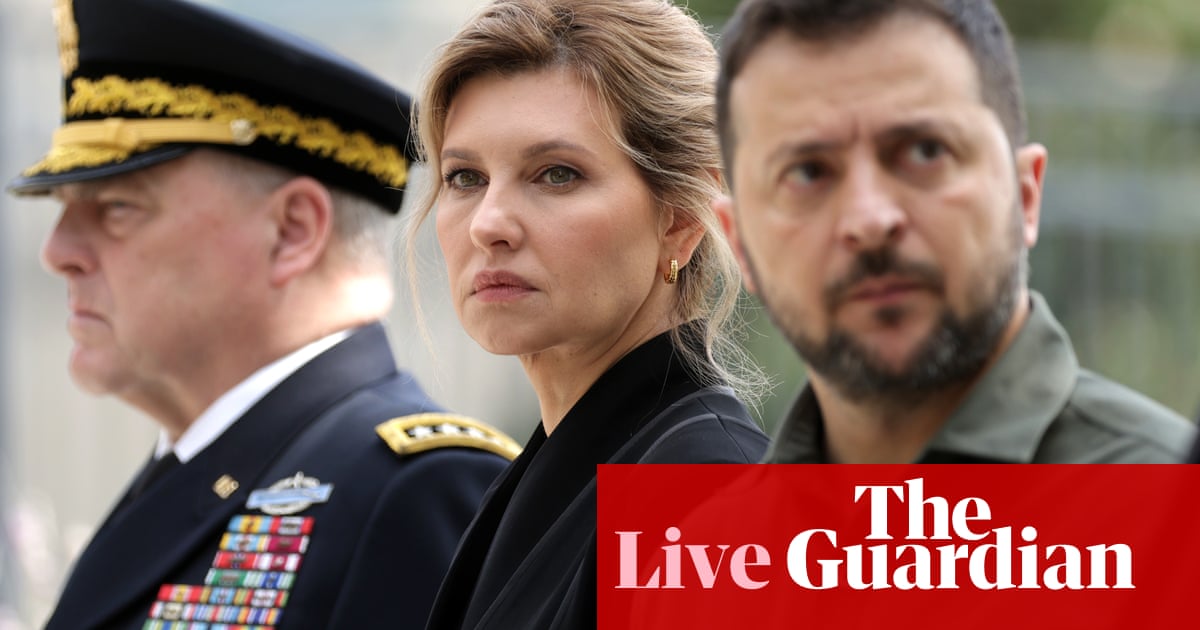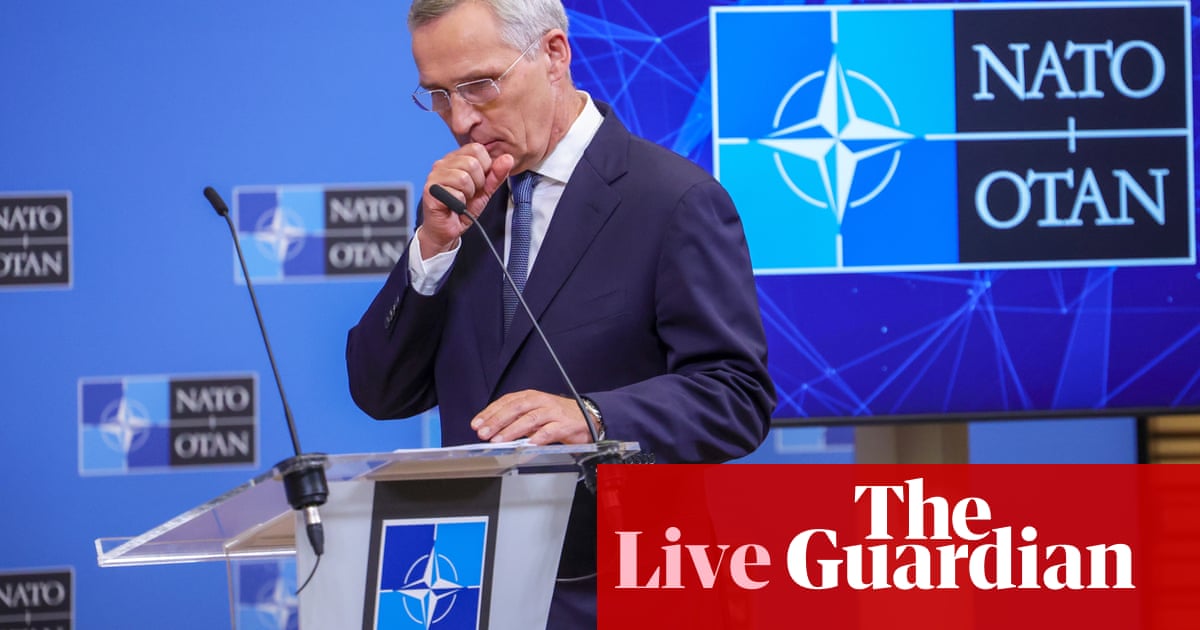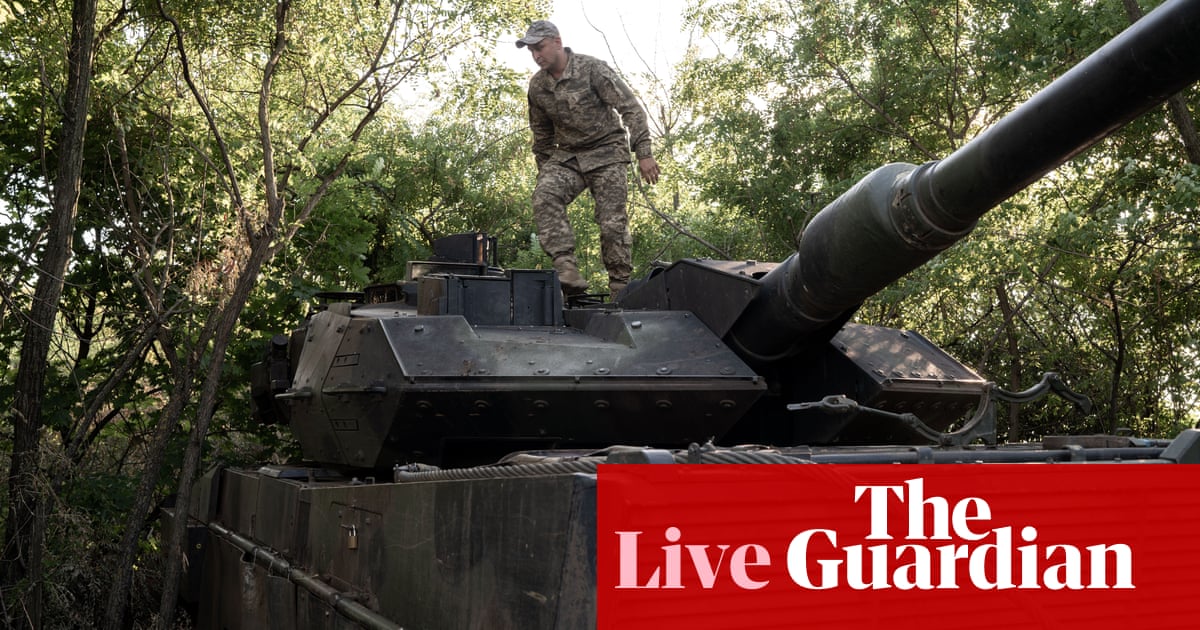
Nato chief: prepare for "a long war in Ukraine"
Jens Stoltenberg has warned there will be no swift end to the Ukraine war, in an interview published on Sunday, as Kyiv pushes on with its counteroffensive against Russia, Agence France-Presse reports.
“Most wars last longer than expected when they first begin,” Stoltenberg said in an interview with Germany’s Funke media group.
“Therefore we must prepare ourselves for a long war in Ukraine.”
Kyiv launched its counteroffensive in June, pushing back against entrenched Russian positions in the south and east, but it has made limited gains.
“We are all wishing for a quick peace,” said Stoltenberg.
“But at the same time we must recognise: if president [Volodymyr] Zelenskiy and the Ukrainians stop fighting, their country will no longer exist.
“If president Putin and Russia lay down their weapons, we will have peace.”
On Ukraine’s ambitions to join the alliance, Stoltenberg said: “There is no doubt that Ukraine will eventually be in Nato.”
Kyiv had “moved closer to Nato” at a summit of the alliance in July, he said, according to AFP.
“When this war ends, we need security guarantees for Ukraine. Otherwise, history could repeat itself,” he added.
At the July summit in Vilnius, Nato leaders agreed that Ukraine could join the alliance once certain conditions are met, and US and German officials made it clear that these would include Kyiv carrying out reforms to protect democracy and the rule of law.
Thank you for following the Guardian’s live rolling coverage of Ukraine’s war against the Russian invasion. That’s all for Sunday, see the top headlines here. This is Jem Bartholomew in London, signing off for today, and closing the Russia-Ukraine war live blog. See you next time.
Ukrainian authorities on Sunday announced that Kyiv’s forces had retaken Klishchiivka, Agence France-Presse reports, a tactically important town south of the frontline city of Bakhmut.
“Klishchiivka was cleared of Russians,” Col Gen Oleksandr Syrskyi, commander of Ukraine’s ground forces, said on social media.
AFP has the details:
Klishchiivka, which was home to several hundred people before Moscow invaded last year, was captured by Russian troops in January.
The announcement came after Ukraine’s armed forces said on Friday that the village of Andriivka, also located south of the eastern Ukrainian city of Bakhmut, had been retaken.
A day later, Russia denied its forces had been pushed out of the frontline village.
Kyiv began pushing back against Moscow’s forces in the south and east of the country in June after building up western weapons and recruiting assault battalions.
Bakhmut, a city that was once home to around 70,000 people, was captured by Russian forces in May following one of the longest and bloodiest battles of Russia’s invasion.
Ukrainian forces, however, almost immediately began pushing back around the northern and southern flanks of the city and have been posting incremental gains.
Sunday Summary
Here are Sunday’s top updates so far:
The Nato chief, Jens Stoltenberg, warns there will be no swift end to the Ukraine war, as Kyiv pushes on with its counteroffensive against Russia.
Ukrainian authorities on Sunday announced that Kyiv’s forces had retaken Klishchiivka, AFP reports, a tactically important town south of the frontline city of Bakhmut.
Ukraine’s president, Volodymyr Zelenskiy, prepares to fly to Washington DC in the coming week, where will meet the US president, Joe Biden, and other senior figures.
Next week Congress will continue debating a further $24bn in aid for Ukraine’s war effort, but some Republicans want to see spending cut.
North Korea’s leader, Kim Jong-un, left Russia on Sunday after inspecting nuclear-capable strategic bombers the previous day with Russia’s defence minister, Sergei Shoigu.
North Korea may be able to boost Russia’s supply of artillery munitions for the war in Ukraine, though it is unlikely to make a big difference, said top US military officer Gen Mark Milley.
US oil and gas multinationals faced fresh questions over their trade with Russia after customs records revealed that more than $7.1m (£5.7m) worth of equipment manufactured by Halliburton has been exported into the country since it announced the end of its operations there.
A farm worker has died and another was injured on Sunday in Ukraine’s southern Kherson region, after their tractor hit a mine while ploughing a field, the governor said.
Russia carried out a missile strike on a plant in the north-east Ukrainian city of Kharkiv, the Russian defence ministry said, where armoured vehicles for Ukraine’s military are repaired.
Russia said it had thwarted a coordinated Ukrainian attack on Crimea early on Sunday, while drones also targeted Moscow, disrupting air traffic in the capital, and caused a fire at an oil depot in the south-west of the country.
The Chechen strongman Ramzan Kadyrov made an apparent move to quash speculation about his ill health, releasing footage on Sunday in which he smiled and recommended everyone play sport.
In the US, the Senate majority leader, Chuck Schumer, and minority leader, Mitch McConnell, will host an all-senators meeting with the Ukrainian president, Volodymyr Zelenskiy, on Thursday morning, the political news organisation Punchbowl News reports, citing an aide.
It comes as Zelenskiy prepares to visit Washington DC in the coming week – as the US president, Joe Biden, seeks a further $24bn in aid for the war effort from Congress. Biden wants $13.1bn in additional military aid for Ukraine and $8.5bn for humanitarian support, plus $2.3bn for financing and to catalyse donors through the World Bank.
The North Korean leader, Kim Jong-un, is on his way home from Russia, according to Russia’s state news agency RIA, ending a six-day trip that saw him visit key military sites with the country’s president, Vladimir Putin.
The visit caused concern about weapon-transfer deals between the two countries. North Korea is banned from exporting or importing any arms by a UN security council resolution.
This is Jem Bartholomew in London taking over from my colleague Nicola Slawson for the rest of the evening. You can get in touch here by email or here on social media with story tips.
Whatever Elon Musk’s new biography says, by giving into Russia’s nuclear blackmail the X boss can only encourage more threats from Putin, writes Timothy Snyder, the Richard C Levin professor of history at Yale University, in this opinion piece:
The Silicon Valley oligarch, perhaps the richest man in the world, extends a hand to his fellow oligarch, the man who has his finger on Russia’s nuclear button. They share a secret about the foolishness of the masses, and take action to save us all from ourselves. Thanks to the two of them, the world is saved from Armageddon.
Not the precis of a favourably reviewed work of dystopian fiction but a scenario presented as though it happened, in a biography of Elon Musk and its press campaign. Although neither Musk nor his biographer can get the story straight, it is true that the multibillionaire CEO of X (the platform formerly known as Twitter) refused to extend the coverage of his Starlink satellite communications for the Ukrainian armed forces last autumn.
Musk did so because Russians (sometimes he says Putin) told him that a Ukrainian attack on part of Ukraine’s own territory (the Crimean peninsula, occupied by Russia) would lead to a Russian nuclear response. This was a lie. Ukraine has carried out dozens of operations in Crimea, some of them quite spectacular. It seems absurd to have to write this sentence, but none of them led to nuclear war. The net effect of such operations was de-escalatory, as such attacks reduce Russia’s capability to attack Ukrainian territory.
Since we all know this from abundant experience, no one should have gone to press with the claim that Musk prevented nuclear war by stopping a Ukrainian attack on a Russian ship docked in Ukrainian territory. As if to punctuate the point, Ukraine has attacked several Russian ships in the past few days. Russia has retaliated by promising to repair them. The Russians know that they are in a war and that the other side is allowed to fight back.
After 19 months of war, most observers have understood that Russia’s ceaseless nuclear threats are a psychological operation, an attempt to frighten Ukraine and its allies into surrender. The claim that Musk prevented escalation repackages Russian propaganda, and helps it to find a new audience. It provides a platform to Russian lies meant to demoralise.
In fact, Musk’s actions have increased the chances of nuclear war. There is always some risk, which Russia increased by initiating a major conflict. Ukraine then decreased the probability by ignoring Russian nuclear blackmail. If Ukraine had surrendered, then the lesson for the rest of the world would have been clear: you must have nuclear weapons, either to blackmail or to avoid being blackmailed. The Ukrainians took this decision under stress, since if a weapon were detonated it would be on their territory. Musk, who was in no danger of any kind, chose instead to give in to the nuclear blackmail, thereby encouraging more of it.
If anything, Musk’s actions also extended the conventional war. After three major battlefield victories last year, the Ukrainians had a chance to put an end to the Russian occupation by striking south. One problem, to be fair to Musk, was that their western allies had not supplied them with the necessary weapons in time. But without comms, a meaningful advance was impossible. This gave the Russian side time to build the fortifications and lay the mines that make this year’s Ukrainian counteroffensive so much harder. Last week I visited a rehabilitation centre in Kyiv, and spoke to soldiers who had lost limbs.In almost every case, they had been wounded by mines. All of them had comrades killed by mines.
Oil prices are on track to reach $100 a barrel this month for the first time in 2023 after surging by almost 30% since June, after Russian and Saudi Arabian production cuts and rising demand from China.
Brent crude, the oil price benchmark, rose to a 10-month high last week of almost $94 a barrel, up from $72 a barrel at its lowest point in June – heading for its biggest quarterly increase since Russia’s invasion of Ukraine.
The lighter US crude, West Texas Intermediate, has climbed from $67 a barrel to $90 a barrel over the same period. Both benchmarks were up by about 4% on the week.
Petrol and diesel prices in the UK have begun to rise modestly, adding 10p to the cost of a litre since June. The motoring organisation RAC said the average price of unleaded fuel was £1.52 a litre on Friday, up from £1.43 in June.
In the US, where tax makes up a smaller proportion of the price at the pumps, gasoline has jumped by more than 10% to $3.90 (£3.15) a gallon (3.8 litres).
An increase in demand for flights in the US, Europe, and more recently China have spurred an even larger increase in jet fuel prices tracked by the Energy Information Administration (EIA). Prices averaged $3.07 a gallon at the end of August, up by 50% from a recent low of $2.05 in early May.
Earlier this month, Saudi Arabia extended 1.3m barrels per day (bpd) of combined cuts to the end of the year, accelerating a drawdown in global inventories.
Supply cuts by Russia to boost prices have also supported efforts by other Opec countries to push prices towards $100 a barrel.
The International Energy Agency (IEA) warned last week that the ongoing supply cuts made by these two Opec+ leaders would create a “significant supply shortfall”, which poses a considerable threat to ongoing price volatility.
US multinationals face fresh questions over trade with Russia
US oil and gas multinationals are facing fresh questions over their trade with Russia after customs records revealed that more than $7.1m (£5.7m) worth of equipment manufactured by Halliburton has been exported into the country since it announced the end of its Russian operations.
Last September Halliburton, one of the world’s largest providers of products and services for oil and gas exploration, sold its Russian office to local management amid pressure on all US companies to cease their trade after the invasion of Ukraine.
Russian customs records seen by the Guardian show that despite this move to sell up on 8 September, Halliburton subsidiaries exported equipment of a value of $5,729,600 to its former operation in Russia in the six weeks that followed the sale.
The equipment was largely shipped from the US and Singapore although the records show it originated in a range of countries, including the UK, Belgium and France.
The bulk of exports from the subsidiaries ended on 6 October but the last shipment to Russia from a Halliburton company, recorded as Halliburton MFG in the records, was of a sealing element priced at $2,939.40 on 24 October 2022 from Malaysia to a firm called Sakhalin Energy, a consortium that is developing the Sakhalin-2 oil and gas project in eastern Russian. Its investors include Gazprom. Shell disinvested from the consortium after the invasion of Ukraine.
After a short pause, imports of Halliburton equipment to Russia then resumed in December 2022 from two companies unrelated to the US multinational.
The products were imported from Turkey, bringing the total value of exports of Halliburton equipment to Russia since the company closed its operations to at least $7,163,317.
A farm worker has died and another was injured on Sunday in Ukraine’s southern Kherson region after their tractor hit a mine while ploughing a field, the Kherson governor said.
On Telegram, Oleksandr Prokudin appealed to residents in the region to refrain from working until the fields have been inspected by sappers.
Liberated after a long Russian occupation, the Kherson region is heavily mined and farmers risk their lives trying to work in fields that have not yet been cleared of mines, Reuters reports.
In a post on the messaging app, Prokudin said:
I’m once again appealing to the residents of the region. Do not start any work until the fields have been inspected by sappers. Take care of your safety.
Here are some more images from the wires showing people visiting a memorial for victims of war crimes, in Bucha, Ukraine. There are names of the 501 people who were reportedly victims of executions and attacks by Russian troops.
The Chechen strongman Ramzan Kadyrov on Sunday released new video footage in which he smiled and recommended everyone practise sport, in an apparent move to quash speculation about his ill health, AFP reports.
Speculation has swirled for months that the hugely influential 46-year-old head of Chechnya accused by rights groups of running a “totalitarian regime” might be ill.
On Sunday, two videos appeared on Kadyrov’s Telegram channel. Wearing a raincoat, he was seen in the first video strolling in an unidentified location. He smiled but his face appeared puffy.
In the second video he was heard speaking Chechen and then saying in Russian “practise sport.”
The words accompanying the videos:
I strongly recommend that everyone who cannot distinguish the truth from lies on the internet go for a walk, get some fresh air and put their thoughts in order.
The rain can be wonderfully invigorating.
It was not possible to immediately establish when the videos were recorded but the footage was published after unconfirmed reports on social media and in certain newspapers that the Chechen leader was in a coma.
Kadyrov has been one of the most enthusiastic supporters of Moscow’s offensive in Ukraine and his battalions have fought alongside regular Russian forces there.
The former rebel warlord turned Kremlin ally has long referred to himself as Vladimir Putin’s “footsoldier.”
Elected president of Chechnya in 2007, Kadyrov has ruled majority-Muslim Chechnya with widespread evidence of extra-judicial killings and torture of his opponents.
Russia has carried out a missile strike on a plant in the north-east Ukrainian city of Kharkiv where armoured vehicles for Ukraine’s military are repaired, the Russian defence ministry said on Sunday.
The ministry did not say when the strike had taken place or provide any other details, Reuters reports.
The regional governor Oleh Synehubov, writing on the Telegram messaging app, said on Sunday that Russia had hit the building of a “civilian enterprise” in Kharkiv with four S300 missiles. The Kharkiv regional administration did not immediately respond to a request from Reuters for comment.
Kharkiv, Ukraine’s second-largest city, had a population of more than 1.4 million before Russia invaded Ukraine in February 2022. Parts of the city lie less than 20 miles from the Russian border.
Its northern suburbs were scarred by fighting earlier in the conflict.
Canada will contribute C$33m (£19.6m) to a British-led partnership that is buying air defence equipment for Ukraine to help it fend off Russian missile and drone attacks, the defence minister Bill Blair said on Sunday.
In a statement, Blair said the contribution was part of the C$500m worth of military aid for Kyiv that the prime minister, Justin Trudeau, announced in June.
Canada, home to one of the world’s largest Ukrainian diasporas, is a vocal supporter of Kyiv. Since Russia invaded in February 2022, Ottawa has committed over C$8bn in aid, including around C$1.8bn in military assistance.
The partnership, which also includes the US, the Netherlands and Denmark, aims to buy hundreds of short- and medium-range air defence missiles and associated systems.
Russia and Ukraine will square off before the international court of justice on Monday in a case that centres around claims by Moscow that its invasion of Ukraine was done to prevent genocide, Reuters reports.
Ukraine brought the case to the UN’s highest court days after the Russian invasion on last year. Kyiv argues Russia is abusing international law by saying the invasion was justified to prevent an alleged genocide in eastern Ukraine.
Russian officials continue to accuse Ukraine of committing genocide.
Russia wants the case to be thrown out and objects to the jurisdiction of the ICJ. The hearings, due to run until 27 September, will not delve into the merits of the case and are instead focused on legal arguments about jurisdiction.
Moscow says Ukraine is using the case as a roundabout way to get a ruling on the overall legality of its military action. Ukraine has already cleared one hurdle as the court decided in its favour in a preliminary decision in the case in March last year. Based on that, the court ordered Russia to cease military actions in Ukraine immediately
In the hearings the court will also hear from 32 other states, all supporting Ukraine’s argument that the court has jurisdiction to move the case forward
“It is looking fairly positive for the court to find it has jurisdiction,” Juliette McIntyre, a law lecturer at the University of South Australia and ICJ watcher, said.
While Russia has so far ignored the ICJ’s orders to stop its military actions and the court has no way of enforcing its decisions, experts say an eventual ruling in favour of Ukraine could be important for any future reparations claims.
McIntyre said:
If the court finds there was no lawful justification under the Genocide convention for Russia’s acts, the decision can set up a future claim for compensation/
The United Nations’ 1948 Genocide conventions define genocide as crimes committed “with intent to destroy, in whole or in part, a national, ethnical, racial or religious group, as such”.




